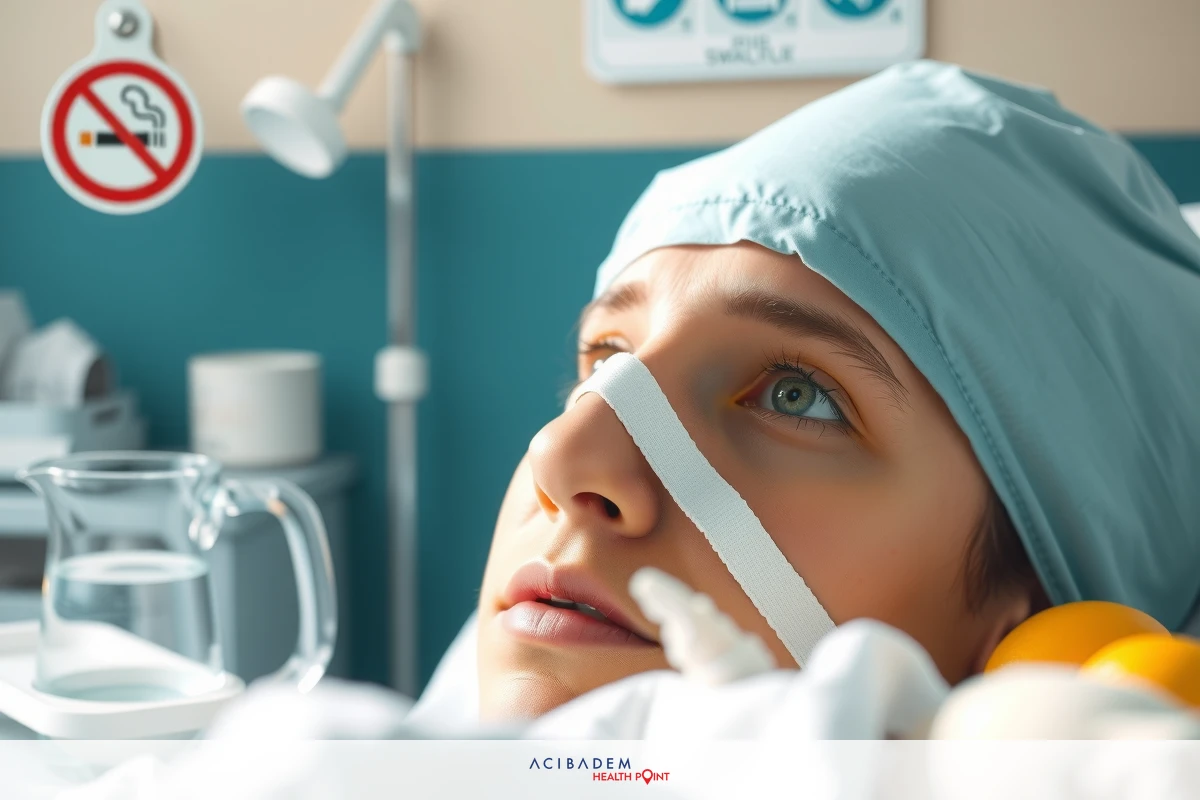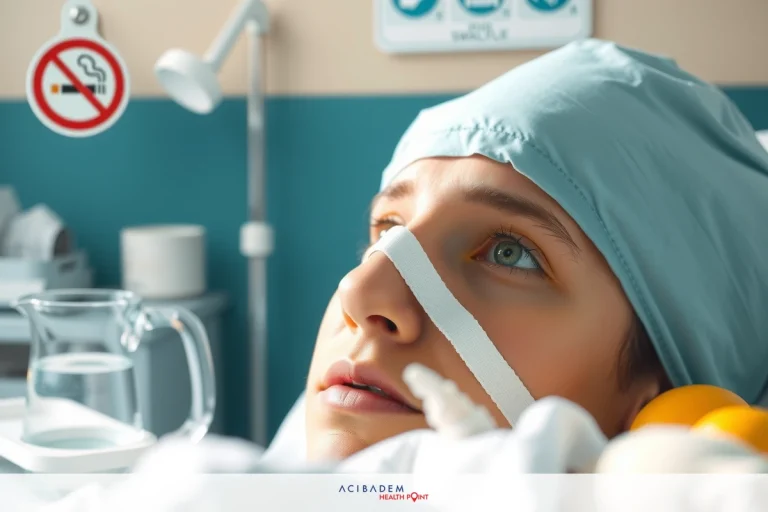How to Protect Your Nose After Rhinoplasty
How to Protect Your Nose After Rhinoplasty Rhinoplasty, or a nose job, is a common type of plastic surgery that involves altering the shape of your nose. Protecting your nose after rhinoplasty surgery is crucial for successful recovery and achieving the desired results. This involves understanding the immediate post-operative care required, learning about the protective measures that need to be taken, as well as maintaining your nasal health throughout the recovery period.
Your immediate actions after surgery can greatly influence the outcome of the procedure. It’s important to follow all medical advice and directions given by your healthcare provider. In the weeks following your operation, there are several precautions you can take to ensure that your nose is protected from potential harm. Maintaining long-term nasal health is paramount for preserving the results of your rhinoplasty. This means taking care of your general health as well as focusing on specific measures that promote nasal well-being.
Immediate Post-Operative Care
How to Protect Your Nose After Rhinoplasty The immediate period after your rhinoplasty surgery is a critical time for healing and protection of your nose. It’s important to follow all care instructions provided by your surgeon to avoid complications and ensure a smooth recovery. For instance, it’s crucial to keep your head elevated as much as possible, including when you’re sleeping. This helps reduce swelling and promotes healing.
Avoid touching or blowing your nose, as this can disrupt the healing process and possibly lead to complications. You may also be asked to wear a nasal splint for the first week after surgery to protect your nose from accidental bumps and allow the new shape to set in place. Stitches are typically removed within a week of surgery, but it’s important not to rush this process. Be patient and let your body heal at its own pace.
How to Protect Your Nose After Rhinoplasty Pain medication may be prescribed by your doctor to manage discomfort, but always check with them before taking any over-the-counter medicines. It’s also crucial to stay hydrated and maintain a healthy diet to support healing. Avoid smoking and limit your alcohol intake, as these can inhibit healing and potentially lead to complications.
It’s normal to experience some bruising, swelling, and stuffiness during the immediate post-operative period. However, if these symptoms persist or worsen, contact your healthcare provider immediately. Remember that effective post-operative care plays a significant role in the success of rhinoplasty surgery, so take these tips seriously and give your body the time it needs to heal properly.
Protective Measures
How to Protect Your Nose After Rhinoplasty After undergoing rhinoplasty, it’s crucial to adopt a set of protective measures to keep your nose safe from potential harm. This not only ensures the success of the surgery but also aids in a smooth and comfortable recovery. Here are some safety precautions and tips that you can follow:
Avoid Strenuous Activities: Engaging in heavy physical activities such as sports or working out can put your nose at risk of injury. It’s best to avoid these for at least six weeks after your rhinoplasty.
Wear Sun Protection: Your skin may be more sensitive after surgery, so wearing a hat and using sunscreen when outdoors can protect your nose from sun damage.
Limit Facial Expressions: Try to limit excessive facial expressions such as laughing or smiling wide as they can strain your healing nose.
Avoid Glasses: If you wear glasses, try to switch to contacts for a few weeks or secure your glasses on your

forehead instead of placing them on the bridge of your nose.
Be Careful with Children and Pets: Small children and pets may accidentally bump into your nose, so be cautious around them during the recovery period.
Refrain from Blowing Your Nose: Resist the urge to blow your nose for a few weeks after surgery to prevent any disruption to the healing process.
By adopting these protective measures, you’ll ensure that your nose stays safe during the crucial recovery period following rhinoplasty. This will help maintain the results of the surgery and promote faster healing.
Maintaining Nasal Health
Maintaining nasal health after a rhinoplasty is key to ensuring long-term results and a successful recovery. This involves not just physical care but also nutritional aspects that support the healing process. For instance, consuming a diet rich in vitamins and minerals can help your body repair itself faster. Foods high in vitamin C, like citrus fruits, are particularly beneficial as they boost collagen production, which is vital for skin healing.
Hydration is another crucial factor for optimal nasal health. Keeping your body adequately hydrated aids in maintaining healthy mucous membranes in the nose, which can help prevent dryness and discomfort. Avoiding dehydrating substances such as alcohol and caffeine can also contribute to an overall healthier nasal environment.
Breathing exercises can be beneficial for maintaining good nasal health after rhinoplasty. Gentle breathing techniques can help keep your nasal passages open and functioning properly. However, always consult with your healthcare provider before starting any new exercise regimen post-surgery.
How to Protect Your Nose After Rhinoplasty Further, it’s important to protect your nose from environmental factors such as extreme temperatures and pollution. If you live in a cold climate, make sure to cover your nose when going outdoors to prevent frostbite on the sensitive skin post-surgery. Similarly, if you’re in a polluted location, consider wearing a mask to avoid inhaling harmful particles that may irritate your nose.
Lastly, adhering to all the follow-up appointments with your surgeon is critical to ensure that everything is healing correctly. They can provide personalized care tips based on how well your nose is recovering. By following these guidelines, you can maintain excellent nasal health after rhinoplasty and enjoy the benefits of your surgery for many years to come.
Frequently Asked Questions
How long does the swelling last after rhinoplasty?
Swelling is a normal part of the healing process after rhinoplasty. The majority of the swelling will subside within the first few weeks, but it can take several months for all residual swelling to completely resolve. Individual healing times may vary, so be patient and follow your surgeon's post-operative instructions to help minimize swelling.
When can I resume normal activities after rhinoplasty?
It's important to avoid strenuous activities for at least six weeks after rhinoplasty. This includes heavy exercise, lifting heavy objects, and any activity that may put pressure or strain on your nose. However, you can gradually increase your activity level as advised by your surgeon during follow-up appointments.
Are there any risks or complications associated with rhinoplasty?
Like any surgical procedure, rhinoplasty carries some risks. These can include infection, bleeding, adverse reactions to anesthesia, scarring, and asymmetry. However, these complications are rare when the surgery is performed by a skilled and experienced surgeon. It's important to choose a qualified professional and closely follow their pre- and post-operative care instructions to minimize any potential risks.
Will I have visible scars after rhinoplasty?
In most cases, the incisions made during rhinoplasty are concealed within the nostrils or along the natural creases of the nose, resulting in minimal visible scarring. However, every individual heals differently, and scarring can vary. Your surgeon will take great care to minimize scarring and provide guidance on scar management techniques during your recovery.
Can I wear glasses after rhinoplasty?
It's best to avoid wearing glasses directly on the bridge of your nose for several weeks after rhinoplasty. The weight and pressure of glasses can potentially impact the healing process and affect the final results. Your surgeon may recommend switching to contact lenses temporarily or finding alternative ways to secure your glasses without placing them directly on your nose.











